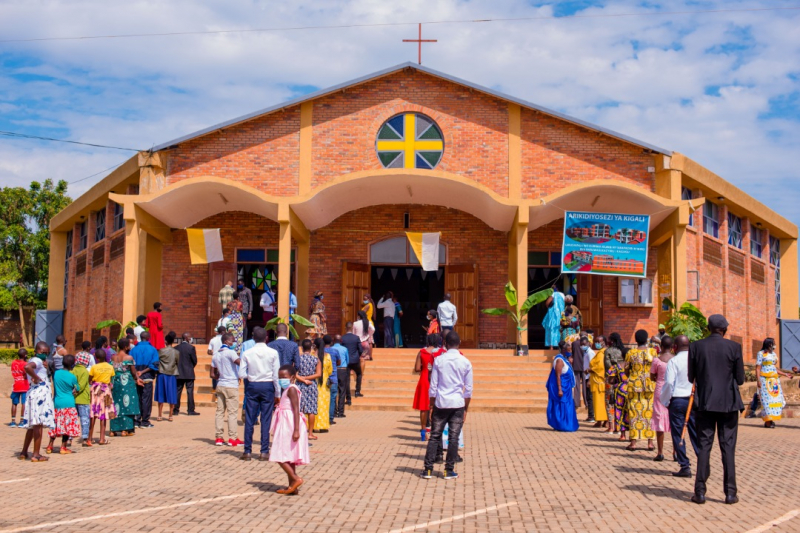Religion
Nowhere in Africa has Christianity had such a profound impact as in Rwanda. Much of the egalitarian inspiration for the Hutu revolution came from the teachings of European clergy, and Catholic seminaries served as breeding grounds for Hutu leaders. More than two-fifths of the population is Roman Catholic, one-third is Protestant, and one-tenth is Adventist. Muslims, nonreligious people, and members of Christian schismatic religious groups make up less than one-tenth of the population.
There is also a small population of Baha'is and some people who follow traditional indigenous beliefs. Since the 1994 genocide, there has been a proliferation of small, usually Christian-linked schismatic religious groups. There are small and secretive Hindu and Buddhist communities, mostly comprised of foreign adherents. In Rwanda, neither religion seriously attempts conversion; however, there is a Hindu Temple of Rwanda as a place of worship.
In the country, foreign missionaries and church-linked nongovernmental organizations (NGOs) of various religious groups operate. Foreign missionaries openly promote their religious beliefs, and the government welcomes their assistance with development.
Rwanda's Constitution guarantees religious freedom, and the government generally upholds this right in practice. Local authorities have detained Jehovah's Witnesses for refusing to participate in security patrols. There were no reports of societal abuses or discrimination based on religious belief or practice in the United States in 2007.












